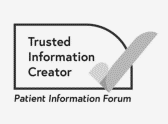How does Cancer Research UK evaluate research?
- We review the latest research on the causes of cancer and look at how well the research has been done.
- The health information on our website is based on lots of quality research carried out over many years.
- Make sure you use reliable information sources when it comes to cancer.
We continually review new research (scientific studies) on the causes of cancer. This is to make sure our information is up to date and based on the best quality evidence. We develop our information by looking at lots of research carried out over many years. Although new research comes out all the time, it is unlikely that one individual study or paper would change our position on a topic.
How to read a scientific paper
Some studies are better than others for telling us what affects cancer risk. These are some of the things we look at when evaluating evidence:
Did the study look at cells, animals or people?
Studies in animals and cells can help scientists understand how cancer works. But they can’t always tell us how it’s relevant to humans, so we focus on studies in people.
How big was the study and how long did it go on for?
Studies in a small number of people aren’t as reliable, because results are more likely to happen by chance. Studies that only follow people for a short amount of time can miss long-term effects. So we mainly look at studies that follow thousands of people over many years.
Did the study consider other factors that can affect cancer risk?
There are lots of things that can affect a person’s risk of cancer. These are called risk factors. Researchers should consider known risk factors when designing a study, to make sure they don’t impact the results. For example, a study looking at air pollution and lung cancer should record whether participants smoke. This is because smoking is the biggest cause of lung cancer.
Was the study peer-reviewed and who funded it?
It’s important to see if a study is published in a peer-reviewed scientific journal. This means that other experts (peers) have assessed the quality of the research and have checked the results. It’s also important to know who funded the study, as this can affect how the findings are presented. For example, Cancer Research UK disregards research funded by the tobacco industry.
How to find accurate information on cancer
Sometimes news outlets exaggerate stories about cancer. So it isn’t always clear what is supported by good evidence. You can use some of the questions above to judge a news story. Read more about spotting fake news on cancer on our blog.
The most important thing is to get your information from a trusted source. For example our website and the NHS.
You can trust health information that the Patient Information Forum (PIF) has approved.
The Patient Information Forum tick looks like this:
When you see this symbol it shows that the information is based on reliable, up to date and high-quality evidence. Cancer Research UK is a trusted information creator and our health and patient information is approved by PIF. Read more about how we write and produce our information.
Last reviewed: 1 March 2023
Next review due: 1 March 2026




